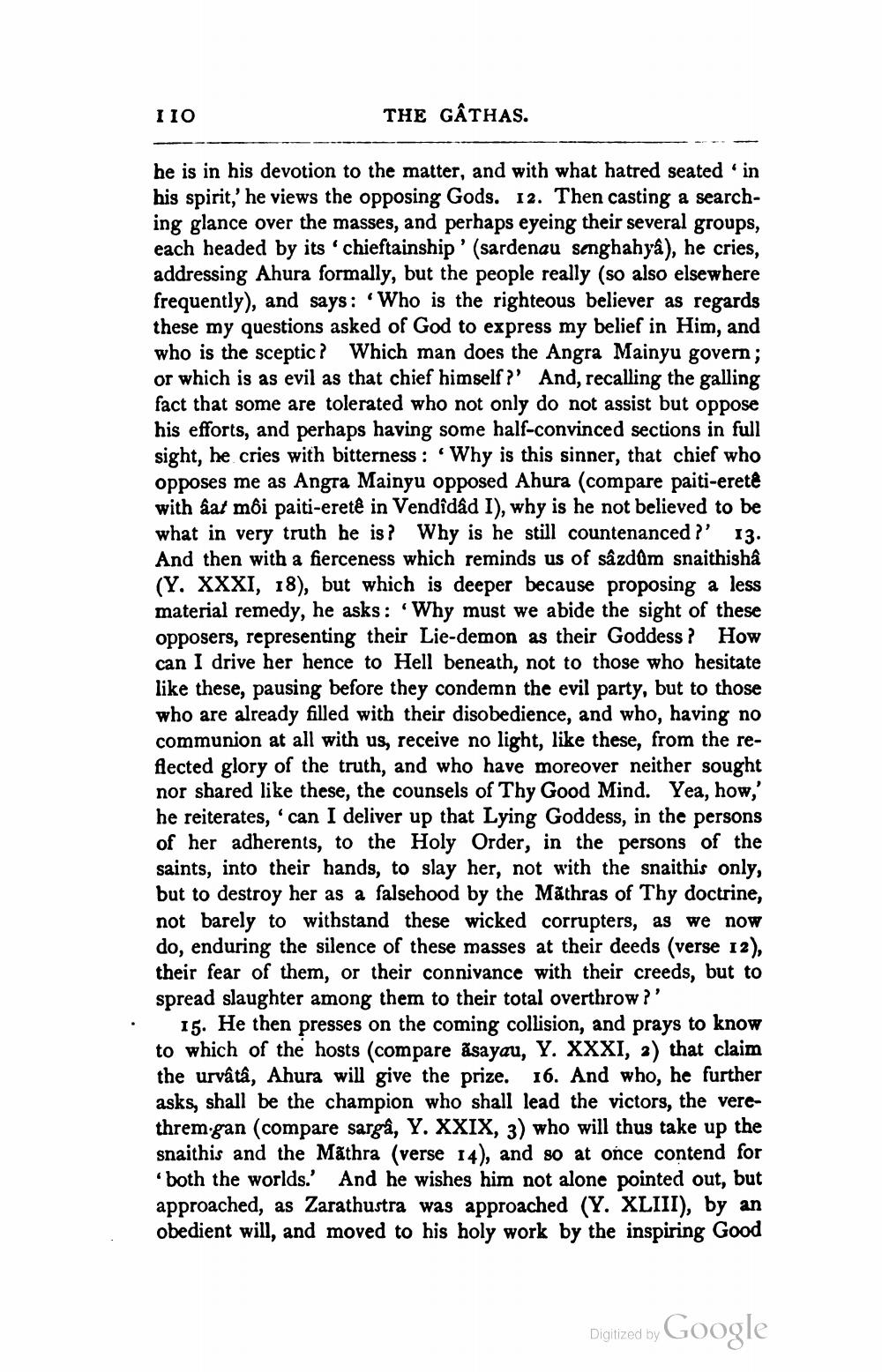________________
IIO
THE GÂTHAS.
he is in his devotion to the matter, and with what hatred seated in his spirit,' he views the opposing Gods. 12. Then casting a searching glance over the masses, and perhaps eyeing their several groups, each headed by its chieftainship’ (sardenau senghahya), he cries, addressing Ahura formally, but the people really (so also elsewhere frequently), and says: 'Who is the righteous believer as regards these my questions asked of God to express my belief in Him, and who is the sceptic? Which man does the Angra Mainyu govern; or which is as evil as that chief himself?' And, recalling the galling fact that some are tolerated who not only do not assist but oppose his efforts, and perhaps having some half-convinced sections in full sight, he cries with bitterness : Why is this sinner, that chief who opposes me as Angra Mainyu opposed Ahura (compare paiti-erete with dat môi paiti-eretê in Vendidad I), why is he not believed to be what in very truth he is? Why is he still countenanced?' 13. And then with a fierceness which reminds us of sâzdům snaithisha (Y. XXXI, 18), but which is deeper because proposing a less material remedy, he asks: Why must we abide the sight of these opposers, representing their Lie-demon as their Goddess ? How can I drive her hence to Hell beneath, not to those who hesitate like these, pausing before they condemn the evil party, but to those who are already filled with their disobedience, and who, having no communion at all with us, receive no light, like these, from the reflected glory of the truth, and who have moreover neither sought nor shared like these, the counsels of Thy Good Mind. Yea, how, he reiterates, can I deliver up that Lying Goddess, in the persons of her adherents, to the Holy Order, in the persons of the saints, into their hands, to slay her, not with the snaithis only, but to destroy her as a falsehood by the Mathras of Thy doctrine, not barely to withstand these wicked corrupters, as we now do, enduring the silence of these masses at their deeds (verse 12), their fear of them, or their connivance with their creeds, but to spread slaughter among them to their total overthrow?'
15. He then presses on the coming collision, and prays to know to which of the hosts (compare asayau, Y. XXXI, 2) that claim the urvata, Ahura will give the prize. 16. And who, he further asks, shall be the champion who shall lead the victors, the verethrem.gan (compare sarga, Y. XXIX, 3) who will thus take up the snaithis and the Mathra (verse 14), and so at once contend for both the worlds.' And he wishes him not alone pointed out, but approached, as Zarathustra was approached (Y. XLIII), by an obedient will, and moved to his holy work by the inspiring Good
Digitized by
Digitized by Google




